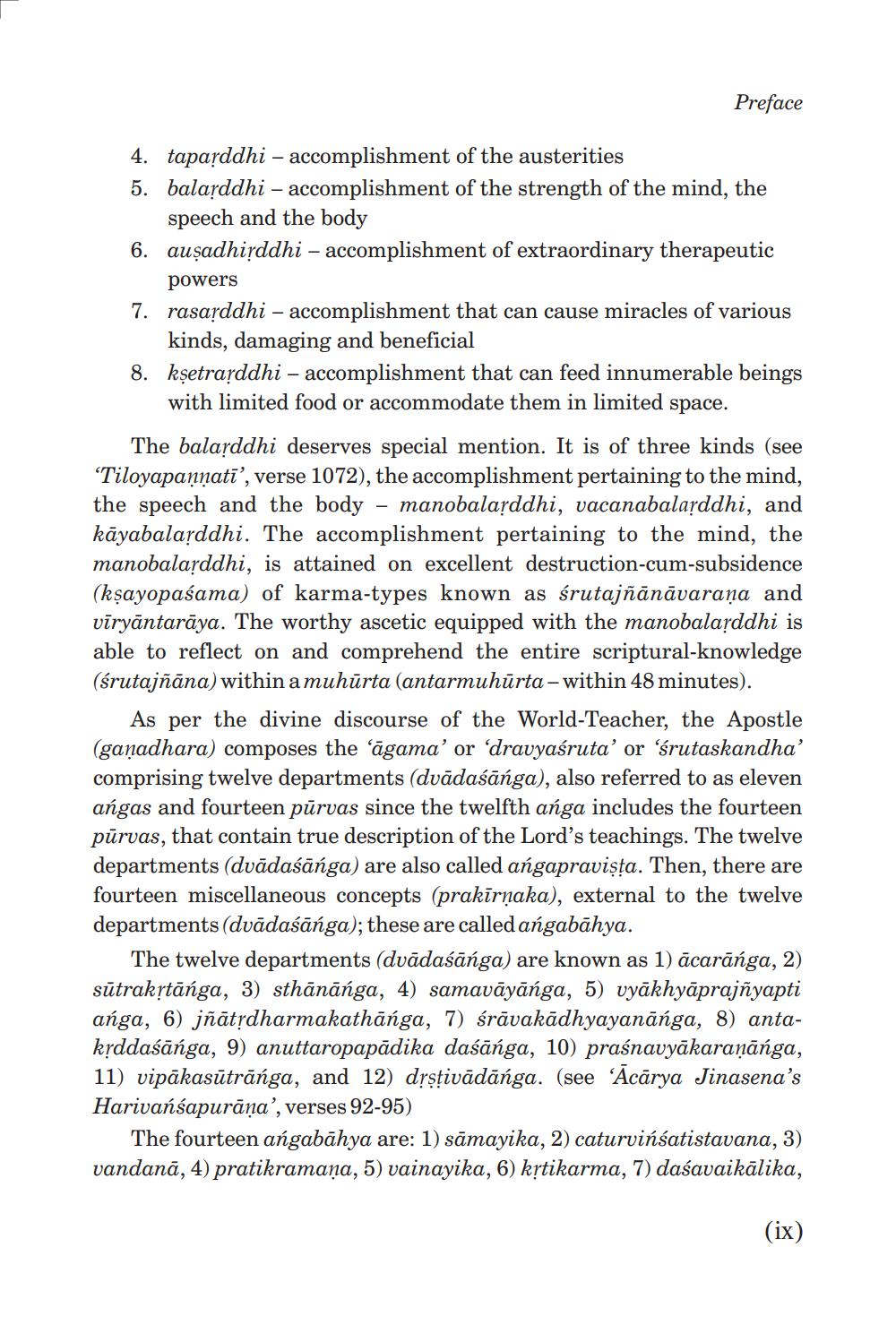________________
Preface
4. taparddhi – accomplishment of the austerities 5. balarddhi – accomplishment of the strength of the mind, the
speech and the body 6. auşadhirddhi – accomplishment of extraordinary therapeutic
powers 7. rasa?ddhi – accomplishment that can cause miracles of various
kinds, damaging and beneficial 8. kşetrarddhi – accomplishment that can feed innumerable beings
with limited food or accommodate them in limited space.
The balarddhi deserves special mention. It is of three kinds (see ‘Tiloyapaņņati', verse 1072), the accomplishment pertaining to the mind, the speech and the body – manobalarddhi, vacanabalarddhi, and kāyabalarddhi. The accomplishment pertaining to the mind, the manobalarddhi, is attained on excellent destruction-cum-subsidence (kşayopaśama) of karma-types known as śrutajñānāvaraṇa and vīryāntarāya. The worthy ascetic equipped with the manobalarddhi is able to reflect on and comprehend the entire scriptural-knowledge (śrutajñāna) within a muhūrta (antarmuhūrta - within 48 minutes).
As per the divine discourse of the World-Teacher, the Apostle (ganadhara) composes the ‘āgama' or 'dravyasruta' or 'śrutaskandha' comprising twelve departments (dvādaśānga), also referred to as eleven angas and fourteen pūrvas since the twelfth anga includes the fourteen pūrvas, that contain true description of the Lord's teachings. The twelve departments (dvādaśānga) are also called angapravişta. Then, there are fourteen miscellaneous concepts (prakīrņaka), external to the twelve departments (dvādaśānga); these are calledańgabāhya.
The twelve departments (dvādaśānga) are known as 1) ācarānga, 2) sūtrakstāńga, 3) sthānānga, 4) samavāyānga, 5) vyākhyāprajñyapti ańga, 6) jñātņdharmakathānga, 7) śrāvakādhyayanānga, 8) antakyddaśānga, 9) anuttaropapādika daśāńga, 10) praśnavyākaraṇānga, 11) vipākasūtrānga, and 12) drstivādāńga. (see 'Acārya Jinasena's Harivansapurāna', verses 92-95)
The fourteen angabāhya are: 1) sāmayika, 2) caturvinsatistavana, 3) vandanā, 4) pratikramaņa, 5) vainayika, 6) krtikarma, 7) daśavaikālika,
(ix)




